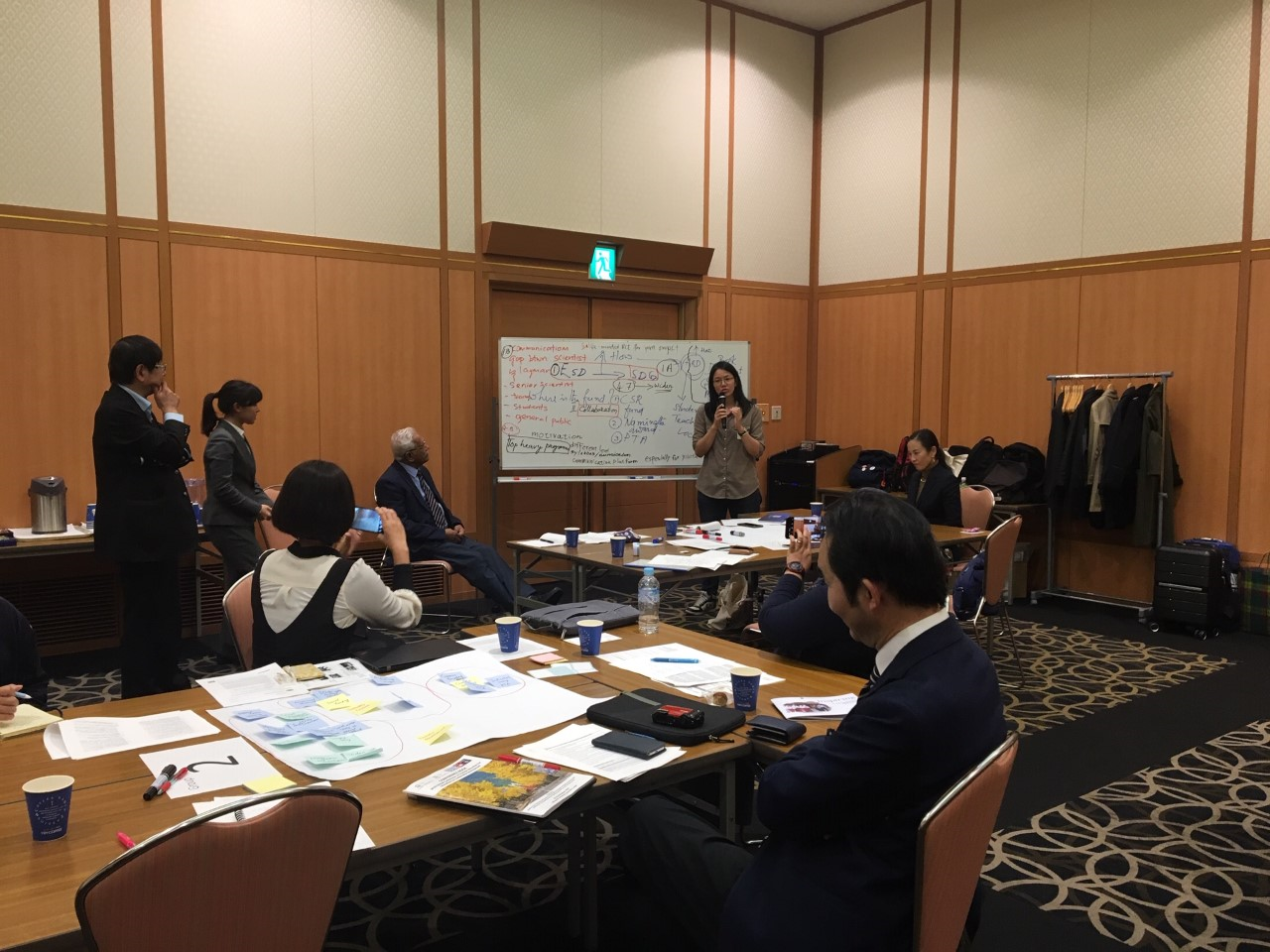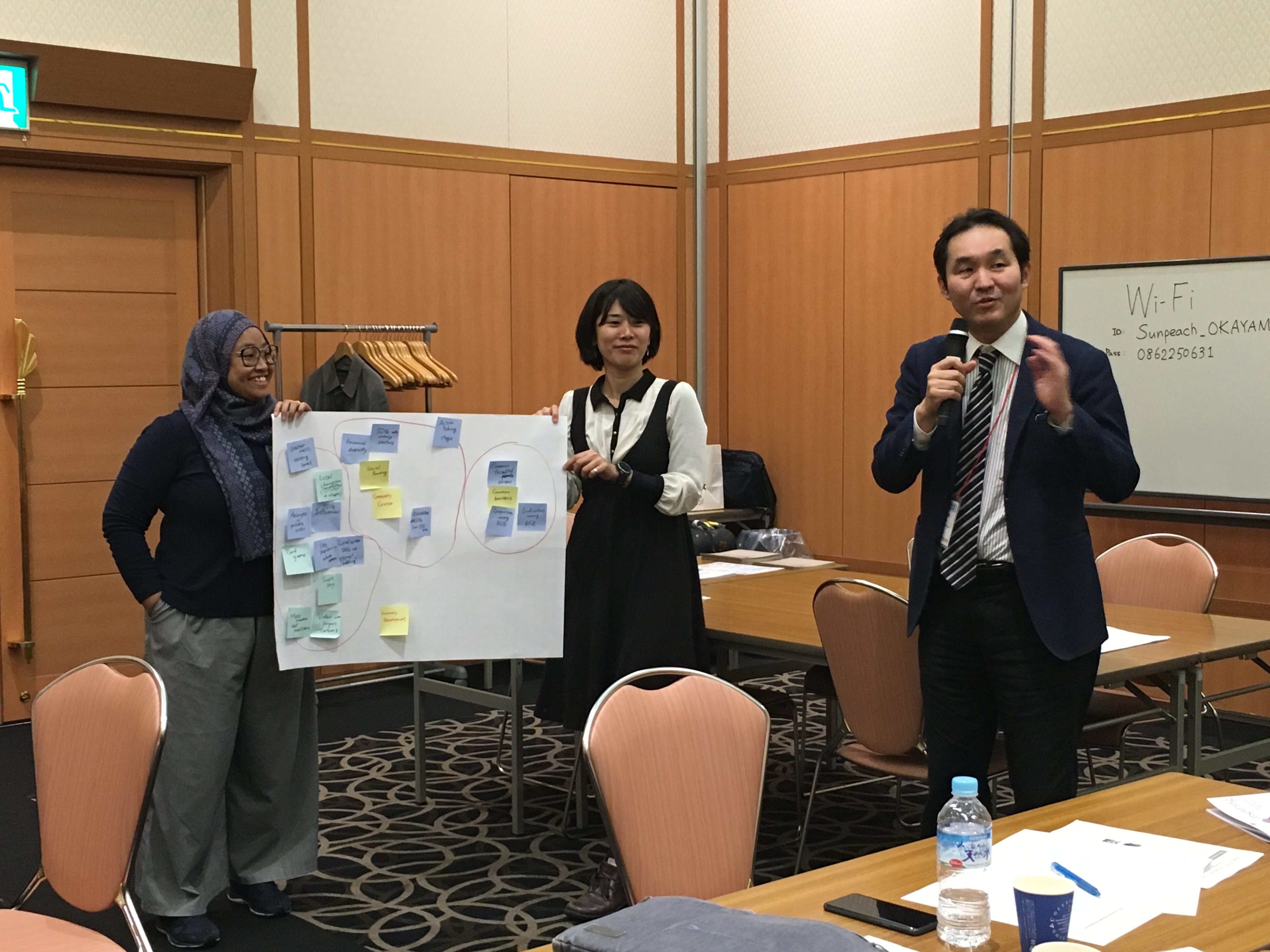RCEs Discuss 'Expectations and Future Developments for ESD for 2030' in Okayama
 The year 2019 is a milestone both for Education for Sustainable Development (ESD) and the 2030 Agenda for Sustainable Development / Sustainable Development Goals (SDGs). With the Global Action Programme (GAP) on ESD ending this year, a new framework for ESD 'Education for Sustainable Development: Towards achieving the SDGs (ESD for 2030)' was adopted at the 40th Session of the UNESCO General Conference in November and will be endorsed at the United Nations General Assembly by the end of 2019.
The year 2019 is a milestone both for Education for Sustainable Development (ESD) and the 2030 Agenda for Sustainable Development / Sustainable Development Goals (SDGs). With the Global Action Programme (GAP) on ESD ending this year, a new framework for ESD 'Education for Sustainable Development: Towards achieving the SDGs (ESD for 2030)' was adopted at the 40th Session of the UNESCO General Conference in November and will be endorsed at the United Nations General Assembly by the end of 2019.
In order to discuss how RCE activities could be further developed for this new stage, a workshop on the 'Future Expectations for RCEs with ESD for 2030' was held on 23 November, 2019 in Okayama, Japan, organised by the UN University Institute for the Advanced Study of Sustainability (UNU-IAS), and supported by RCE Okayama. The workshop was held back-to-back with the 'ESD Forum and ESD Okayama Award 2019' held on 24 November, 2019 organised by the Okayama ESD Promotion Commission, the ESD Okayama Award Steering Committee, Okayama city, and Okayama University.
 In the opening remarks, Prof. Suzuki Katsunori, UNU-IAS, highlighted the importance of discussing how RCEs can collaborate with each other and further promote ESD in the coming years. In his welcoming remarks, Prof. Abe Hirofumi, RCE Okayama, welcomed all participants and delivered his expectation for RCEs to play significant roles, sharing historical Okayama ESD activities.
In the opening remarks, Prof. Suzuki Katsunori, UNU-IAS, highlighted the importance of discussing how RCEs can collaborate with each other and further promote ESD in the coming years. In his welcoming remarks, Prof. Abe Hirofumi, RCE Okayama, welcomed all participants and delivered his expectation for RCEs to play significant roles, sharing historical Okayama ESD activities.
The event brought together around 20 participants from RCE Hokkaido Central, RCE Greater Sendai, RCE Chubu, RCE Okayama and RCE Kitakyushu from Japan, RCE Iskandar (Malaysia), RCE Thiruvananthapuram (India), and RCE Yogyakarta (Indonesia). RCEs delivered presentations focusing on the major focus areas and activities in their respective RCEs, major barriers they are facing, and expectations towards the next step for ESD / RCE activities.
The discussion included the need for balanced internal coordination in RCEs, scope of outreach, continuity of projects, financial approaches, the relationship between problem solving and academic outputs, how to accelerate transformations, and coordination among different stakeholders. A Q&A session followed the presentations, whereby major topics included how to analyse impacts, how to expand funding opportunities, and how to accelerate RCE activities.
 Ms. Masuda Hiromi, UNU-IAS shared information on the recent trends on ESD and SDGs covering the historical background and development in both the development and sustainability agendas.
Ms. Masuda Hiromi, UNU-IAS shared information on the recent trends on ESD and SDGs covering the historical background and development in both the development and sustainability agendas.
Group Discussions focused on three key questions: (i) how RCE activities should be further developed with the 2030 Agenda/SDGs and 'ESD for 2030', (ii) how RCE networks could collaborate together, and (iii) the expectations on added values of the RCE network for the new ESD phase. All the participants proactively contributed to the group discussion. Some commonalities were observed in opportunities and challenges for approaches to SDGs and translation of SDGs into local contexts. For future approaches, suggestions included: 1) sharing common focus areas of RCEs for possible collaboration and joint projects, 2) expanding partnerships with private sectors, as well as inter-generationally, 3) recognition of RCEs as a hub to connect spots and links, 4) diversification in funding opportunities and sources, 5) importance in communication, inspiration and motivation, and 6) comparison and analysis of RCE activities.
(Photo credits: UNU-IAS)


